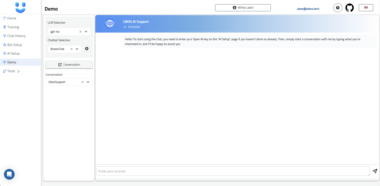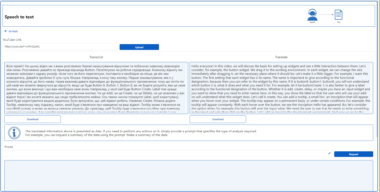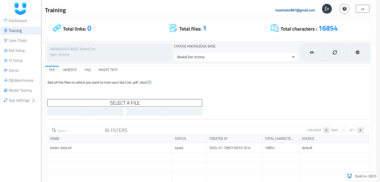Overview of MCP Server for AI-Driven Browser Automation
In the rapidly evolving landscape of AI and automation, the MCP (Model Context Protocol) Server stands out as a quintessential tool, particularly when integrated with UBOS’s full-stack AI Agent Development Platform. Designed to bridge the gap between AI models and external data sources, the MCP server empowers developers and enterprises to harness the full potential of AI-driven browser automation using basic calculator features.
What is MCP Server?
The MCP Server is an open protocol that standardizes how applications provide context to Large Language Models (LLMs). It acts as a conduit, enabling AI models to access and interact with external data sources and tools, thereby enhancing their functionality and application scope.
Key Features
- Browser Automation: The MCP server provides seamless browser automation capabilities, allowing AI models to perform tasks that require interaction with web interfaces.
- Calculator Integration: With the inclusion of basic calculator functionalities, such as addition, subtraction, multiplication, division, modulus, and square root, the MCP server offers a versatile toolset for computational tasks.
- Programmatic Usage: Developers can leverage programmatic usage with custom transports, enabling tailored solutions for specific project needs.
- CLI Options: The server supports command-line options, including port specification for SSE transport, ensuring flexibility and ease of integration.
Use Cases
- Test Code Integration: Ideal for developers looking to test code connectivity with MCP features, ensuring robust and reliable interactions.
- Toy Projects: Perfect for educational and experimental projects, allowing users to explore the capabilities of AI-driven browser automation in a controlled environment.
UBOS Platform Integration
UBOS, as a full-stack AI Agent Development Platform, focuses on bringing AI Agents to every business department. The integration of MCP Server within the UBOS ecosystem allows businesses to orchestrate AI Agents, connect them with enterprise data, and build custom AI Agents using their LLM models. This synergy facilitates the creation of Multi-Agent Systems that can automate complex workflows, improve decision-making processes, and enhance productivity across various sectors.
Example Configuration
Configuring the MCP server is straightforward. Below is an example configuration for integrating the calculator feature:
{
"mcpServers": {
"calculate": {
"command": "npx",
"args": [
"-y",
"@wrtnlabs/calculator@latest"
]
}
}
}
Installation in VS Code
For developers using Visual Studio Code, the MCP server can be installed using the VS Code CLI:
# For VS Code
code --add-mcp '{"name":"calculator","command":"npx","args":["-y", "@wrtnlabs/calculator-mcp@latest"]}'
Conclusion
The MCP Server, with its robust set of features and seamless integration capabilities, is an invaluable asset for developers and enterprises looking to leverage AI-driven automation. By integrating with the UBOS platform, users can unlock new levels of efficiency and innovation, driving business success in the digital age.
Calculator
Project Details
- wrtnlabs/calculator-mcp
- @wrtnlabs/calculator-mcp
- MIT License
- Last Updated: 4/17/2025
Categories
Recomended MCP Servers

Allows LLM agents to control a local chrome instance without taking screenshots

Model Context Protocol server for Replicate's API
Google Sheets MCP Server

MCP server for MS SQL Server

MCP server to interact with Redis Server, AWS Memory DB, etc for caching or other use-cases where in-memory...
A MCP(Model Context Protocol) server that accesses to Lightdash

Model Context Protocol (MCP) server for Excalidraw - Work in Progress

A Model Context Protocol implementation for FHIR
A MCP server for our beloved terminal multiplexer tmux.
MCP Toolbox for Databases is an open source MCP server for databases, designed and built with enterprise-quality and...
 From vibe coding to vibe deployment. UBOS MCP turns ideas into infra with one message.
From vibe coding to vibe deployment. UBOS MCP turns ideas into infra with one message.








